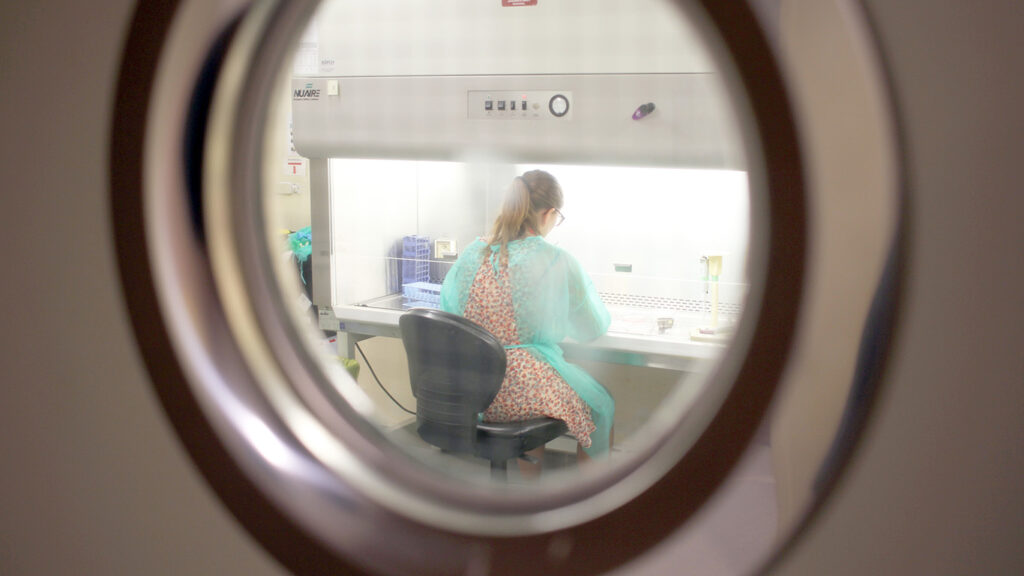The Cellular and Molecular Neurobiology research group of the Bellvitge Biomedical Research Institute (IDIBELL) and the Institute of Neurosciences of the University of Barcelona (UB) led by Dr. Artur Llobet published a study that reveals that microtubules, apart from their known structural role in cells, they also exert an active influence on neuronal communication.
The study, published in the journal Communications Biology, shows a significant increase in the frequency of spontaneous neurotransmitter release when microtubules depolymerize. The consequence is greater neuronal communication without specific external stimuli.
As explained by Dr. Cecilia Velasco, first author of the paper and member of the Faculty of Medicine and Health Sciences of the UB, in any chemical synapse, the presynaptic terminals release neurotransmitters in response to an electrical signal. However, a small part of the neurotransmitters is released spontaneously, without a stimulus. How and why this occurs is still unknown.
The study focused on the role of microtubules, an element of the cell cytoskeleton continually growing and shrinking. This property determines multiple cell functions, such as cell division or movement. For the first time, it has been observed how microtubule dynamics are also relevant for the spontaneous release of neurotransmitters. The study results suggest that molecular pathways that promote microtubule shortening could be used by neurons to establish neural communication in the absence of electrical signals.
This discovery opens the possibility to undrstand the mechanisms that promote the high levels of spontaneous release of neurotransmitters that occur in the early stages of development. The mechanism identification that may be key in the assembly of neural circuits leads us to consider microtubule stability not only as a key determinant of synaptic connectivity but also as a new pharmacological target capable of regulating the release of neurotransmitters.
The Bellvitge Biomedical Research Institute (IDIBELL) is a biomedical research center created in 2004. It is participated by the Bellvitge University Hospital and the Viladecans Hospital of the Catalan Institute of Health, the Catalan Institute of Oncology, the University of Barcelona and the City Council of L’Hospitalet de Llobregat.
IDIBELL is a member of the Campus of International Excellence of the University of Barcelona HUBc and is part of the CERCA institution of the Generalitat de Catalunya. In 2009 it became one of the first five Spanish research centers accredited as a health research institute by the Carlos III Health Institute. In addition, it is part of the “HR Excellence in Research” program of the European Union and is a member of EATRIS and REGIC. Since 2018, IDIBELL has been an Accredited Center of the AECC Scientific Foundation (FCAECC).

